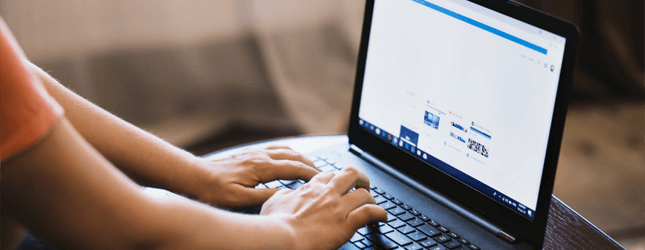What Are the Main Benefits of VPNs?

Ever wondered what the benefits of VPNs are? Well, we aim to answer all your questions with this thorough article.
We’ll start out by showcasing the main advantages in a clear, streamlined list. For those of you who’d like a more in-depth look at the benefits of VPN services for specific scenarios, we’ve got you covered with the rest of this article – like how a VPN can help your business, how a VPN service can make traveling more enjoyable, and other interesting stuff like that.
Feel free to use our Table of Contents to skip to the section that interest you if it’s easier.
Table of contents
- What Are the Benefits of VPNs?
- What Are the Benefits of VPNs for Businesses?
- What Are the Benefits of VPNs for Video Conferencing?
- What Are the Benefits of VPNs for Working from Home?
- What Are the Benefits of VPNs for Personal Use?
- What Are the Benefits of VPNs for Gaming?
- What Are the Benefits of VPNs When Traveling?
- What Are the Benefits of VPNs on Phones?
- What Are the Benefits of Adding a VPN to a Router?
- What Are the Benefits of Torrenting with a VPN?
- What Are the Benefits of VPN Providers?
- Are There Any Benefits of Using a Free VPN?
- Enjoy All the Benefits of VPN Services with CactusVPN!
What Are the Benefits of VPNs?
- Enhanced Online Security – Most VPNs use powerful encryption protocols to make sure your Internet traffic and online data are protected when you browse the web. As a result, you won’t have to worry about cybercriminals stealing sensitive info from you – not even on unsecured networks.
- Access to Any Online Content – A VPN can mask your IP address, and replace it with one from a different country, letting you bypass geo-blocks and giving you access to any website or online services you want.
- Online Privacy – Since a VPN hides your IP address, it can make you anonymous online – to a certain degree, of course. This is a good way to secure your online freedom of speech if you live in a country with more oppressive laws.
What Are the Benefits of VPNs for Businesses?
Before we get into it, we need to make one clear distinction – there are remote-access VPNs and personal VPNs.
Remote-access VPNs (also known as “corporate VPNs”) are internal tools large companies usually configure and set up on their own. They are used to allow secure remote employee access to company resources.
Personal VPNs are offered by third-party providers, and are usually used by all kinds of Internet user to access online content in a secure, unrestricted manner.
However, smaller companies that don’t have the time, financial resources, and manpower to set up their own internal VPN can use a personal VPN from reliable providers too.
For the sake of keeping things simple, we’ll use “VPN” to refer to a personal VPN, and “corporate VPN” to refer to internally-configured remote-access VPNs.
Deal with Geo-restrictions
With that out of the way, one of the main benefits of using a VPN for your business is being able to deal with geo-restrictions. They can be a problem if you need to access websites that aren’t available in your country.
Here’s a good example – say you run a content and copywriting business, and your agency is based in Europe. One day, you get a new client who needs copy work done on their website. The only problem is their website is only accessible by users from the US.
Fortunately, a VPN could make it seem like you and your employees are connecting to the website from the US, helping you circumvent that issue and retain a client instead of potentially losing them because of those complications.
A corporate VPN might not really help with that, though, as it usually relies on a single or multiple dedicated servers on company premises. Unblocking foreign content with a corporate VPN is only possible if the company uses servers outside the country.
Now if any of your employees would need to access your own company’s website when they’re abroad, and the website is available only to people in your country, a VPN and a corporate VPN would help them bypass that problem.
Decrease the Risk of Falling Prey to Hackers
VPNs and corporate VPNs make it easier for you to decrease the risk of your company falling prey to hackers. How? By making sure employees access your business network and files in a way that’s secured by encryption standards.
For example, that would really be helpful when your employees are on a lunch break at the restaurant across the street. If they realize they need to connect to the company’s network to solve an issue right then and there, they’ll have to use the restaurant’s WiFi, which can be very risky since cybercriminals can monitor WiFi traffic or just spoof WiFi networks altogether. Well, if your employees use a VPN or a corporate VPN to connect, all the traffic and data will thoroughly encrypted.
Besides that, the security aspect will also help put your clients at ease, as they will be happy to know you’re taking extra precautions to make sure their data is properly secured.
Lastly, VPNs and corporate VPNs would make it easier for your business to give employees the opportunity to work remotely (either from home or abroad), as that can increase their productivity and save you money on office space rent.
What Are the Benefits of VPNs for Video Conferencing?
Video conferences are quite common nowadays – especially if a business works with overseas freelancers/employees or clients. If that’s the case for you, you’ll be happy to know that a VPN can be quite helpful with these kinds of calls.
For one, if you happen to be from a country like Mexico, Jordan, Morocco, or South Korea (to name a few notable examples), there’s a chance many VoIP tools you’d like to use – like Skype, especially – can be blocked by the government. The same goes if your employees are from those countries

And while VoIP blocks aren’t constant all the time, the government tends to block VoIP tools spontaneously and for long periods of time, which can be detrimental to your business – especially when dealing with time-sensitive projects.
The good news is that a VPN can help you bypass any restrictions that stand in your way. No matter what firewalls the government uses, a VPN will help you circumvent them so that your business can hold video conferences without any issue.
Besides that, there are 3 other ways a VPN can help improve video conferencing:
- It could help you get better pricing when it comes to call rates and monthly plans.
- It can help prevent ISP bandwidth throttling, which can occur if your conference calls tend to go on for hours daily.
- It can help secure your VoIP traffic to ensure nobody – especially cybercriminals – can snoop in on it to steal sensitive info.
In case you’d like to read up more on VPNs and VoIP calls, check out this article we wrote a while back on this topic.
What Are the Benefits of VPNs for Working from Home?
If you run your business from home, are a remote employee, or just a freelancer whose office is at home, you’ll be happy to know a VPN can work to your advantage too.
For one, it can help you bypass geo-blocks that can get in the way of your work. For instance, say you do market research for a client, and he/she wants you to look up car dealership websites from the US. Well, some of those websites could be restricted if you don’t access them from the US.
Luckily, a VPN can make it seem as if you’re connecting to a website from the US, so you’ll be able to do your job with no issues. That would also come in handy if you live in a country in Asia, and want to make it seem as if you’re working from the US (or any other Western country).
Another good example would be you being a freelance SEO researcher, and having to look up multiple localized search engine results for a client. A VPN could easily help you with that by hiding your geo-location, and letting you see results from multiple countries or cities.
On top of that, a VPN (and a corporate VPN) can encrypt your online traffic and personal data – including business-related info too. That can really come in handy if you need to access company data from home in a secure manner.
And, obviously, a VPN would prove very helpful if you need to use VoIP calls and attend video conferences to talk with your employers or clients. If you’d like to know more about that, just check out the section above this one.
What Are the Benefits of VPNs for Personal Use?
When it comes to browsing the web at your own leisure, a VPN can be quite invaluable. In fact, one of the most popular benefits of VPNs for everyday browsing is the fact that they let you access any online content you want.
Since a VPN can mask your IP address, no geo-restrictions will prevent you from watching your favorite shows or listening to your favorite music – no matter what country you reside in.
And if you like to talk with friends and family using VoIP calls, you’ll be glad to know a VPN can potentially help you get better call rates, unblock VoIP services that might not be available in your country, and secure your call traffic too.

Speaking of securing your traffic, you should also know that a VPN’s encryption can properly safeguard your Internet traffic and personal data to make sure no hackers can steal sensitive info. At the same time, your ISP or any government surveillance won’t be able to monitor your online activities.
Oh, and a VPN could help you combat targeted ads to a certain degree since it would help you use search engines without your searches being logged. Thus, if you were to look up sensitive topics like “divorce” or “anger management,” you wouldn’t have to worry about Google tracing that back to you.
Plus, you don’t have to limit yourself to the benefits of using a VPN at home. Such a tool can also help you bypass restrictions at work or school – firewall restrictions, to be exact. So, for instance, if you can’t listen to music on YouTube or check out Twitter on your workplace or campus network, a VPN would help you circumvent that obstacle, and get direct access to anything you want.
Besides all that, a VPN is also a great option for those of you who like to play video games.
What Are the Benefits of VPNs for Gaming?
Yes, a VPN benefits gaming enthusiasts too. Here’s exactly how it can improve your overall experience:
- If you like to game online for hours on a daily basis, a VPN can help prevent your ISP from throttling your bandwidth – basically limiting your online speeds in an attempt to get you to buy bigger data plans or pricier subscriptions.
- A VPN can help you play some games earlier. For example, it’s not rare to see some video games get a later release date in Europe than they do in the US. Well, a VPN can make it seem like you’re from the US to give you early access.
- VPNs can help you reduce ping time and lags by letting you connect to a VPN server that’s physically closer to the gaming servers you play on.
- VPNs can help you bypass IP bans – both permanent and temporary.
- Most important of all – a VPN can protect your from DDoS attacks. Your IP address will be hidden, so you won’t have to worry about your network getting flooded with tons of unwanted traffic.
If you’d like to learn more about this particular subject, feel free to check out this article we wrote on it.
What Are the Benefits of VPNs When Traveling?
A VPN can be a surprisingly useful tool to have by your side when traveling – especially abroad. Here are the 4 main reasons why:
1. A VPN Helps You Access Blocked Content
Depending on what country you are going to, there’s a chance you might have to put up with the country’s government blocking all sorts of websites. For example, going to China will most likely mean you won’t be able to access Facebook because of the government’s Great Firewall, while visiting Turkey might mean you won’t be able to access your online bookings if you’ve used Booking.com.
And while other countries don’t block certain websites continuously, you never know when the government might decide to restrict access to a specific website (or more), like Vietnam did back in 2016, when the country blocked Facebook for 2 weeks.
Not to worry, though – a VPN would be able to help you bypass any government-imposed firewall by masking your IP address and online traffic.

Beside that, a VPN can help you deal with geo-blocks too. For instance, if you’re from the US, and you’re traveling somewhere in Europe or Asia, you won’t have access to things like Netflix US, Pandora Radio, or all sorts of news sites.
That can be pretty annoying – especially when you consider how important entertainment is to pass the time when traveling by train, bus, or car, or simply when you want to relax in your hotel room with your favorite shows.
Luckily, all you need to do is use a VPN, connect to the appropriate server, and start enjoying your favorite online content – no matter where you are.
2. A VPN Can Help You Find Cheaper Flights
If you travel by plane often, you’ll be happy to know a VPN could potentially help you get a discount on your tickets. It’s not a 100% sure thing, but since a VPN hides your real IP address and geo-location, it could help you combat online price discrimination.
If you’re not familiar with that concept, it’s basically airlines displaying different prices based on the geographical location you connect to the website from. Also, the price can vary if the airline website has previously logged your IP address, and sees you as a returning visitor.
In terms of how much money you can save, that can vary a lot. According to many online posts, the saved money can range from $20-$30 to hundreds of dollars.
Oh, and for the best results, don’t forget to delete any tracking cookies on the device you’re using too.
In case you’d like to learn more about this, feel free to check out this article we wrote on this topic.
3. A VPN Can Protect You from Cyber Threats
We all need to do check our bank accounts, send money, or just access our emails on vacation. However, far too few people realize just how dangerous WiFi networks can be when traveling abroad. Here are 3 ways cybercriminals can exploit them, actually:
- They can spoof WiFi networks, effectively creating fake, near-identical copies of the original network. Once you connect to a fake WiFi network, hackers can easily steal all your data. And yes, this can happen with hotel WiFi too.
- They can infiltrate unsecured networks and steal user data or exploit the KRACK vulnerability that has been found to affect both WEP and WPA2, meaning not even secured WiFis are 100% safe. WPA3 has already been announced to combat this issue, but it might take some time until it’s fully integrated in most devices. Even then, who knows how long it will take each hotel to get a WPA3-certified network device.
- They can use Man-in-the-Middle Attacks to intercept your communication with someone else, insert themselves in it, and start eavesdropping on any sensitive data you share.
Luckily, one of the primary benefits of VPNs on WiFi is that they can offer a decent degree of protection in this case, as they encrypt all your Internet traffic and personal data when you connect to the web through a WiFi network (yes, even an unsecured one), effectively protecting all of it from hackers.
4. A VPN Protects Your Online Privacy
This is one of the most useful benefits of VPNs overseas. Essentially, when connecting to any WiFi networks, it’s best to use a VPN if you want to make sure nobody can snoop in on what you do online.
After all, when traveling, it’s extremely tempting to use your hotel or restaurant WiFi to access the web. When you’re out touring the city, and you need to check the map but you used up all your mobile data for the month, even random public WiFi hotspots seem like a good idea.
However, if you do that, you open yourself to the risk of a potential cyber criminal monitoring your Internet traffic. Don’t forget – many public WiFi networks are unsecured. Sometimes, even hotel WiFi can be unsecured. And, with a bit of technical know-how, anyone would be able to see what you’re doing or saying online when connected to such networks.
For example, a hacker could monitor what you search for to see what your itinerary is. With that kind of information, they would be able to tail you around. Pretty creepy, right?
Yes, it seems a bit far-fetched, we know, but is taking a risk worth it? In our opinion, it’s just better to be safe than sorry.
Besides that, a VPN can help protect you from intrusive ISP behavior. Don’t forget – when you connect to a hotel’s WiFi, the ISP the hotel works with will be able to monitor your Internet traffic if they want.
So, if you’re looking up or accessing sensitive topics online – things that are for your eyes only – an ISP will know about that. In case that’s not a concern for you, maybe this would be – if you travel to the US, ISPs won’t just snoop in on your browsing activities. They will also collect and monetize your data by selling it to third-party advertisers.
What Are the Benefits of VPNs on Phones?
Let’s face it – you probably never leave your home without your phone. It’s a useful device that’s a part of our daily life, after all – whether you use it to check the time, keep in touch with people, or just entertain yourself for a few minutes or hours at a time.
Why would a VPN be necessary on a phone, you ask? Well, one of the main VPN benefits to consider in this case is the fact that it can secure all your sensitive details (like credit card and bank account info, email passwords, email attachments, and so on) when you’re connected to the Internet using a WiFi network.
Using your phone to do some online banking on your local coffee shop’s WiFi network while you savour your morning drink can be convenient, but it’s also very dangerous.

We already discussed how WiFi networks can be exploited by hackers (if you’ve missed that, head on to reason #3 under “What Are the Benefits of VPNs When Traveling?”), and the main idea is this: A VPN’s encryption can safeguard your online traffic and data on any WiFi network to make sure it doesn’t get stolen
So, if you use a VPN on your phone, you can safely connect to any account you want without having to worry about falling victim to cybercriminals.
Another reason why a VPN would be useful on a mobile device is the fact that it can help you overcome geo-restrictions, letting you enjoy any entertainment you want on the go – be it geo-blocked websites and services, or geo-restricted apps.
What Are the Benefits of Adding a VPN to a Router?
Setting up a VPN on a router is possible, and there are several benefits to be gained by doing that, such as:
- Being able to use the VPN on multiple devices, like an Xbox, PlayStation, or smart TV – basically, any device that can connect to the router you configure the VPN on.
- Not having to turn on the VPN every time you want to use it, as it will be on by default once it’s set up on the router. Also, just one setup is necessary – you won’t have to do it multiple times on other devices (as long as the devices can connect to the router).
- Being protected from the consequences of WiFi poaching – the act of someone using your WiFi without your permission. Essentially, you won’t be at risk of a hacker collecting your geo-location data, and using your network for illegal purposes to intentionally have that traced back to you.
However, it is worth noting that adding a VPN to a router is not without its drawbacks. If you’d like to learn more about that (and anything else related to setting up a VPN on a router), feel free to check out our comprehensive guide on that topic.
What Are the Benefits of Torrenting with a VPN?
The main way a VPN can help you with file-sharing is by keeping you safe from legal issues and DMCAs. Sadly, in countries like the US and Canada (to name a few examples), torrenting is a touchy subject, and can easily land you in court (or worse) if you’re not careful.
Basically, the problem is that it’s extremely hard to know if the file you are downloading is a legal torrent or not. Let’s be real – who has time to do hours of research for every single file they download to make sure everything is in order?
But since a VPN can mask your IP address, and encrypt your traffic to prevent your ISP (or anyone else) from monitoring it, you won’t have to worry about getting any angry letters from your ISP or copyright agencies.

That’s not all – if you torrent files without a VPN, other users downloading/uploading said files will be able to see your real IP address, as well as your metadata and and geo-location. If a stranger gets access to info like that, they could potentially track everything you do and download online.
Well, like we already said – VPNs hide your real location, making it near impossible for anyone to trace everything you download online back to you.
DISCLAIMER: We don’t promote copyright infringement, or anything like that. However, we are aware that many people rely on file-sharing to gain access to files they normally wouldn’t be able to access, either because they aren’t available to them or because they can’t afford them – especially when it comes to school and work projects.
What Are the Benefits of VPN Providers?
The main advantage of using a VPN provider is that you get access to a VPN service directly – without having to set up or configure any complicated stuff on your end. Yes, you get to enjoy multiple servers, encryption, and unrestricted access to content – all for a few dollars per month.
Another nice perk is that VPN providers usually offer access to their service through many apps too. And one of the main benefits of VPN apps is that you get to enjoy VPN features on multiple devices – not just your computer.
Also, VPN providers usually offer you access to tons of useful tutorials that help you better understand how a VPN can benefit you specifically, and how to set up the service on all sorts of devices (if using the apps is not enough for you).
Are There Any Benefits of Using a Free VPN?
Other than the fact that the service is free – in theory, at least – there really aren’t any other advantages to talk about. Long story short, here are the main risks you’ll be exposing yourself to if you choose a free VPN:
- Malware infections
- Having your bandwidth sold for a profit
- Having your personal data sold to advertisers
- Not having your traffic and data properly encrypted
- Getting spammed with ads
Why do free VPN providers do things like that? Because they need to make money somehow to keep their services operational, after all. In case you’d like to learn more about that, feel free to check out this article.
Enjoy All the Benefits of VPN Services with CactusVPN!
No matter what your goal is, we are certain CactusVPN can help you take your online experience to the next level. We have tons of experience with helping users secure their online privacy, and fight back against unfair geo-blocks.
With over 30 worldwide servers to choose from (10 of which offer P2P support), you’re sure to have a great time. Plus, all our VPN servers double as proxy servers, and they all offer unlimited bandwidth too!
Enjoy High-End Security Whenever You’re Online
Our VPN services feature very strong AES encryption, so your data and online traffic will be safe and sound and surveillance-free even on unsecured WiFi networks. On top of that, you can also take advantage of our highly secure OpenVPN protocol – alongside other 5 protocols too.
Best of all – you get to enjoy complete online privacy too. That’s right – we don’t store any logs whatsoever!
True Cross-Platform Compatibility + Tons of Content Variety
We made sure our user-friendly apps work on the most popular devices out there:
Windows
macOS
iOS
Android
Android TV
Amazon
Fire TV
Fire TV
Stick
And if you’re looking for even more content, you’ll be happy to know our VPN features an optional Smart DNS service, which can help you unblock over 300 websites!
Special Deal! Get CactusVPN for $3.5/mo!
And once you do become a CactusVPN customer, we’ll still have your back with a 30-day money-back guarantee.



